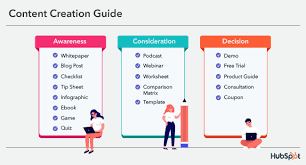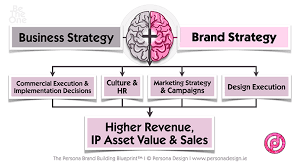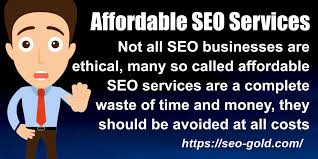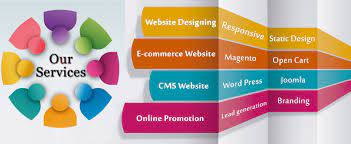The Power of E-Commerce Solutions
In today’s digital age, e-commerce has revolutionised the way businesses operate and customers shop. With the increasing demand for online shopping experiences, having effective e-commerce solutions in place is essential for businesses looking to thrive in the competitive market.
Benefits of E-Commerce Solutions
Global Reach: E-commerce solutions enable businesses to reach a global audience, breaking geographical barriers and expanding market reach.
24/7 Accessibility: Online stores are accessible 24/7, allowing customers to shop at their convenience, leading to increased sales and customer satisfaction.
Cost-Effective: Setting up an e-commerce platform is often more cost-effective than traditional brick-and-mortar stores, saving on overhead costs and reaching a wider customer base.
Key Features of Effective E-Commerce Solutions
User-Friendly Interface: A seamless and intuitive interface enhances the shopping experience for customers, leading to higher conversion rates.
Secure Payment Gateways: Providing secure payment options instils trust in customers and ensures their financial information is protected.
Multichannel Integration: Integrating e-commerce solutions with social media platforms and other sales channels can help businesses reach a wider audience and drive sales.
The Future of E-Commerce
The future of e-commerce is bright, with advancements in technology shaping the way businesses interact with customers online. From AI-powered chatbots to personalised shopping experiences, e-commerce solutions continue to evolve to meet the changing needs of consumers.
In conclusion, investing in robust e-commerce solutions is crucial for businesses looking to stay competitive in the digital marketplace. By leveraging the power of technology and providing exceptional online shopping experiences, businesses can drive growth, expand their reach, and succeed in the ever-evolving world of e-commerce.
Essential FAQs on E-Commerce Solutions: Benefits, Security, Features, and More
- What are e-commerce solutions?
- How can e-commerce solutions benefit my business?
- Are e-commerce solutions secure for online transactions?
- What features should I look for in an e-commerce platform?
- How do I choose the right e-commerce solution for my business?
- Can e-commerce solutions integrate with my existing website or systems?
- Do e-commerce solutions support multiple payment options?
- What ongoing support is provided with e-commerce solutions?
- How can I measure the success of my e-commerce platform?
What are e-commerce solutions?
E-commerce solutions encompass a range of digital tools and platforms designed to facilitate online transactions, streamline the shopping experience, and enhance the overall performance of online businesses. These solutions typically include features such as secure payment gateways, user-friendly interfaces, inventory management systems, and multichannel integration capabilities. In essence, e-commerce solutions provide businesses with the necessary infrastructure to establish and operate successful online stores, enabling them to reach a global audience, increase sales, and build lasting customer relationships in the competitive world of e-commerce.
How can e-commerce solutions benefit my business?
Implementing e-commerce solutions can significantly benefit your business in various ways. By embracing e-commerce, you open up new opportunities to reach a wider audience beyond geographical boundaries, leading to increased sales and brand visibility. E-commerce solutions provide 24/7 accessibility for customers, allowing them to shop at their convenience and enhancing overall customer satisfaction. Moreover, cost-effectiveness is a key advantage, as online stores typically have lower overhead costs compared to traditional brick-and-mortar establishments. With secure payment gateways and user-friendly interfaces, e-commerce solutions can streamline the shopping experience for customers and build trust in your brand. Overall, investing in e-commerce solutions can propel your business forward in the digital age and help you stay competitive in the ever-evolving marketplace.
Are e-commerce solutions secure for online transactions?
When considering e-commerce solutions for online transactions, a common concern revolves around security. It is essential to ensure that e-commerce platforms implement robust security measures to protect sensitive customer data during online transactions. Trusted e-commerce solutions often utilise secure payment gateways, encryption protocols, and compliance with industry standards to safeguard financial information and provide customers with a secure shopping experience. By prioritising security in e-commerce solutions, businesses can instil trust in their customers and mitigate the risks associated with online transactions, ultimately fostering a safe and reliable shopping environment.
What features should I look for in an e-commerce platform?
When considering e-commerce solutions, it is essential to look for certain key features in an e-commerce platform to ensure its effectiveness and suitability for your business needs. Some crucial features to consider include a user-friendly interface that enhances the shopping experience, secure payment gateways to build trust with customers, multichannel integration for reaching a wider audience, robust inventory management capabilities, responsive design for mobile compatibility, SEO tools for better visibility online, and analytics and reporting functionalities to track performance and make informed decisions. By prioritising these features in an e-commerce platform, businesses can create a seamless online shopping experience that drives sales and customer satisfaction.
How do I choose the right e-commerce solution for my business?
When selecting the ideal e-commerce solution for your business, it is essential to consider several key factors to ensure that it aligns with your specific needs and goals. Start by evaluating the scalability and flexibility of the platform to accommodate your business growth. Assess the features and functionalities offered, such as payment gateways, inventory management, and mobile responsiveness, to determine if they meet your requirements. Additionally, consider the level of support and security provided by the e-commerce solution provider to safeguard your online transactions and customer data. By conducting thorough research and understanding your business’s unique requirements, you can make an informed decision in choosing the right e-commerce solution that will drive success for your online venture.
Can e-commerce solutions integrate with my existing website or systems?
Businesses often wonder, “Can e-commerce solutions integrate with my existing website or systems?” The answer is a resounding yes. E-commerce solutions are designed to be flexible and adaptable, allowing seamless integration with your current website and systems. Whether you have an established online presence or specific backend processes in place, e-commerce solutions can be tailored to work harmoniously with your existing infrastructure. This integration not only streamlines operations but also enhances the overall customer experience by providing a cohesive and unified platform for transactions and interactions.
Do e-commerce solutions support multiple payment options?
In the realm of e-commerce solutions, a common query revolves around the support for multiple payment options. The answer is a resounding yes. E-commerce solutions are designed to accommodate a variety of payment methods, catering to the diverse preferences of customers. From traditional credit and debit card payments to digital wallets, bank transfers, and even emerging cryptocurrencies, modern e-commerce platforms offer flexibility and convenience in payment processing. By providing support for multiple payment options, businesses can enhance customer satisfaction, streamline transactions, and ultimately drive sales in the dynamic online marketplace.
What ongoing support is provided with e-commerce solutions?
When it comes to e-commerce solutions, ongoing support is a crucial aspect that ensures the smooth operation and success of your online business. Providers of e-commerce solutions typically offer a range of support services to assist you after the initial setup. This can include technical support for any issues that may arise, regular updates and maintenance to keep your platform running smoothly, as well as training and guidance to help you make the most of your e-commerce solution. Having access to reliable ongoing support ensures that your e-commerce platform remains secure, up-to-date, and optimised for performance, allowing you to focus on growing your business with confidence.
How can I measure the success of my e-commerce platform?
Measuring the success of an e-commerce platform involves tracking various key performance indicators (KPIs) to gauge its effectiveness in driving sales and engaging customers. Metrics such as conversion rate, average order value, customer acquisition cost, and customer retention rate can provide valuable insights into the platform’s performance. Additionally, monitoring website traffic, bounce rate, and user engagement can help assess the overall user experience and identify areas for improvement. By analysing these metrics regularly and making data-driven decisions, businesses can evaluate the success of their e-commerce platform and implement strategies to enhance its performance and drive sustainable growth.









